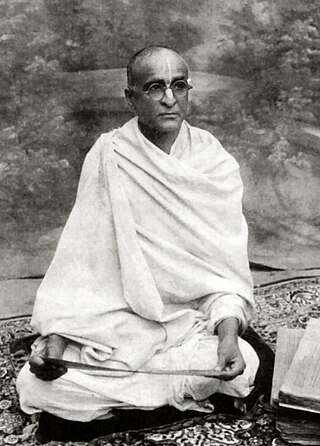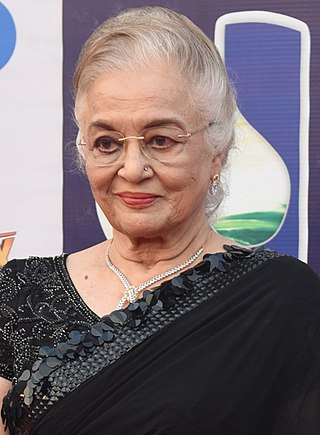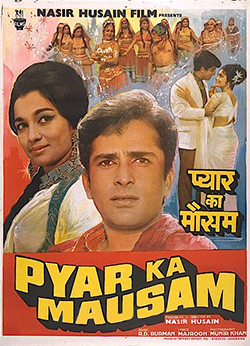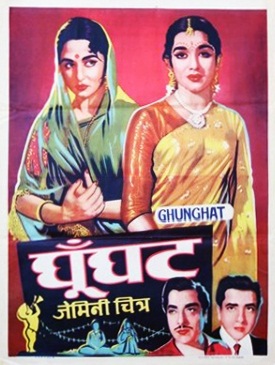
Chaitanya Mahaprabhu, born Vishvambhar Mishra, was a 15th-century Indian Hindu saint from Bengal who was the founder of Gaudiya Vaishnavism, which considers him to be an incarnation of Krishna.

Bhaktisiddhanta Sarasvati, born Bimala Prasad Datt, was an Indian Gaudīya Vaisnava Hindu guru, ācārya, and revivalist in early twentieth-century India. To his followers, he was known as Srila Prabhupāda.

Nityananda, also called Nitai, was a primary religious figure within the Gaudiya Vaishnava tradition of Bengal. Nitai was Chaitanya Mahaprabhu's friend and disciple. They are often mentioned together as Gaura-Nitai or Nimai-Nitai. Followers often refer to Nityānanda as "Sri Nityananda", "Prabhu Nityananda" or "Nityananda Rama".

Gaudiya Vaishnavism, also known as Chaitanya Vaishnavism, is a Vaishnava Hindu religious movement inspired by Chaitanya Mahaprabhu (1486–1534) in India. "Gaudiya" refers to the Gaura or Gauḍa region of Bengal, with Vaishnavism meaning "the worship of Vishnu". Specifically, it is part of Krishnaism—Krishna-centric Vaishnavite traditions.

Asha Parekh is an Indian actress, film director, and producer who worked in Hindi films. Regarded as one of Hindi cinema's finest actresses, Parekh has worked in more than 85 films, in a career spanning over four decades. Parekh has received several accolades including two Filmfare Awards. In 1992, she was honoured with the Padma Shri by the Government of India for her contribution to the field of cinema and was honoured with Dadasaheb Phalke Award in 2020.

Pyar Ka Mausam is a 1969 Indian Hindi-language musical romance film under Nasir Hussain films banner. Its plot has much similarity to Hussain's own earlier film "Tumsa Nahi Dekha," with Ameeta and Shammi Kapoor in the lead roles. It starred Shashi Kapoor, and the Nasir Husain fixture- Asha Parekh. It also had Bharat Bhushan, Nirupa Roy, Madan Puri, Tahir Hussain and another Nasir Husain fixture Rajendranath. Nasir's nephew Faisal Khan who was 3 years old at the time plays Shashi Kapoor's character as a child. Two more Husain fixtures were responsible for the memorable songs: lyricist Majrooh Sultanpuri and music composer R.D. Burman. R.D.Burman also had an acting role in the film. The film became a Silver Jubilee Hit.

Baiju Bawra is a 1952 Hindi musical romantic drama film directed by Vijay Bhatt. Produced by Prakash Pictures, with story by Ramchandra Thakur and dialogues by Zia Sarhadi, Baiju Bawra was a musical "megahit" which had a mighty 100-week run in the theatres. Bhatt's decision to make a film based on classical music was met with scepticism by the Indian film industry due to its "lack of mass appeal", but the film and music turned out be an "overwhelming success".

Isvara Puri was a monk who was a disciple of Madhavendra Puri from the Madhva Sampradaya. He met Chaitanya at Gaya, India, whereupon Mahaprabhu requested Puri to be his guru. The latter agreed and accepted Mahaprabhu as his disciple several days later, initiating him into the Gopal-mantra.
Raghunatha Bhatta Goswami (1505–1579) was a well known follower of the Vaishnava saint Chaitanya Mahaprabhu, and member of the influential Gaudiya Vaishnava group collectively known as the Six Goswamis of Vrindavan. He is regarded by followers in the Gaudiya tradition as an ideal practitioner of the Bhakti yoga system.

Gadadhara Pandita, also known as Pandita Goswami, was a close childhood friend of Chaitanya Mahaprabhu. Gadadhara Pandita Goswami is described as a handsome young boy, student of Nyaya and ranked highest among the inner circle of Chaitanya Mahaprabhu's followers.

Gharana (Family) is a 1961 Indian Hindi film that stars Raaj Kumar, Rajendra Kumar and Asha Parekh. It is directed by S. S. Vasan. The film became a box office hit. The film was a remake of the 1960 Telugu film Shanthi Nivasam and remade in 1988 as Ghar Ghar Ki Kahani.

Ghunghat is a 1960 Hindi drama movie directed by Ramanand Sagar and produced by S.S. Vasan from Gemini Studios.
Ameeta is an Indian actress. She appeared in Hindi language films such as Tumsa Nahin Dekha, Mere Mehboob and Goonj Uthi Shehnai.

Vijay Bhatt was a producer-director-screenwriter of Hindi cinema, who made such films as Ram Rajya (1943), Baiju Bawra (1952), Goonj Uthi Shehnai (1959) and Himalaya Ki God Mein (1965).

Goonj Uthi Shehnai is a 1959 Hindi film directed by Vijay Bhatt, with Rajendra Kumar, Ameeta, Anita Guha and I. S. Johar as leads. The film has music by Vasant Desai and lyrics by Bharat Vyas, and the duo created numerous hits such as "Jivan Men Piya Tera Sath Rahe" sung by Lata Mangeshkar and Mohd. Rafi, and Lata's "Tere Sur Aur Mere Geet" and "Dil Ka Khilona Hai Toot Gaya".

Angulimaal is a 1960 Hindi mythology drama film directed by Vijay Bhatt. The film was a Thai Information Service Co. Ltd. Presentation.

Ram Rajya is an Indian 1967 Hindi religious film based on Valmiki's Ramayana and directed by Vijay Bhatt. The film was produced by Shankarbhai Bhatt. The music director was Vasant Desai with lyrics written by Bharat Vyas. The cinematographer was Pravin Bhatt and the film starred Bina Rai, Kumar Sen, Badri Prasad, Kanhaiyalal, Farida dadi, Anil Kumar, Jay Vijay.















